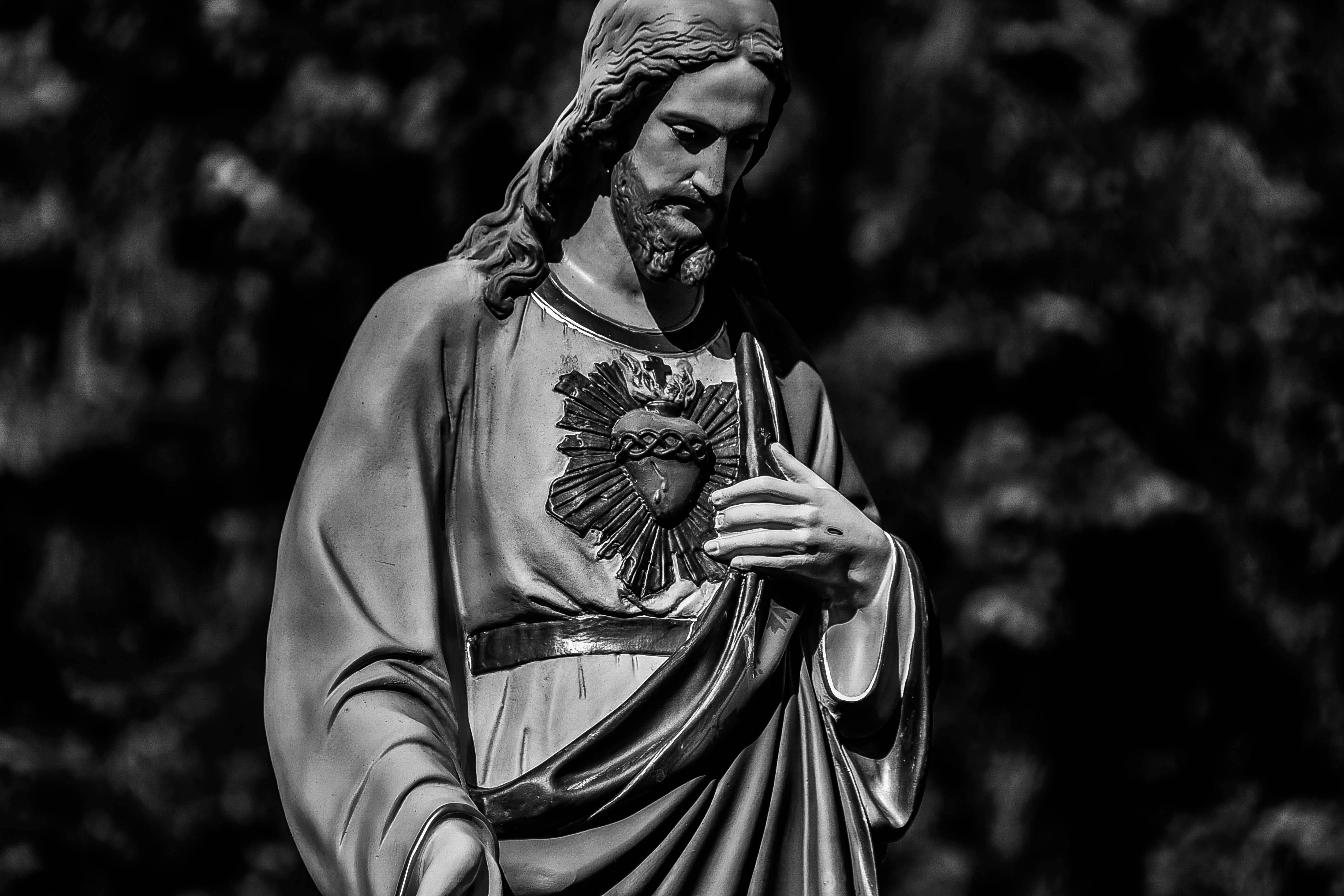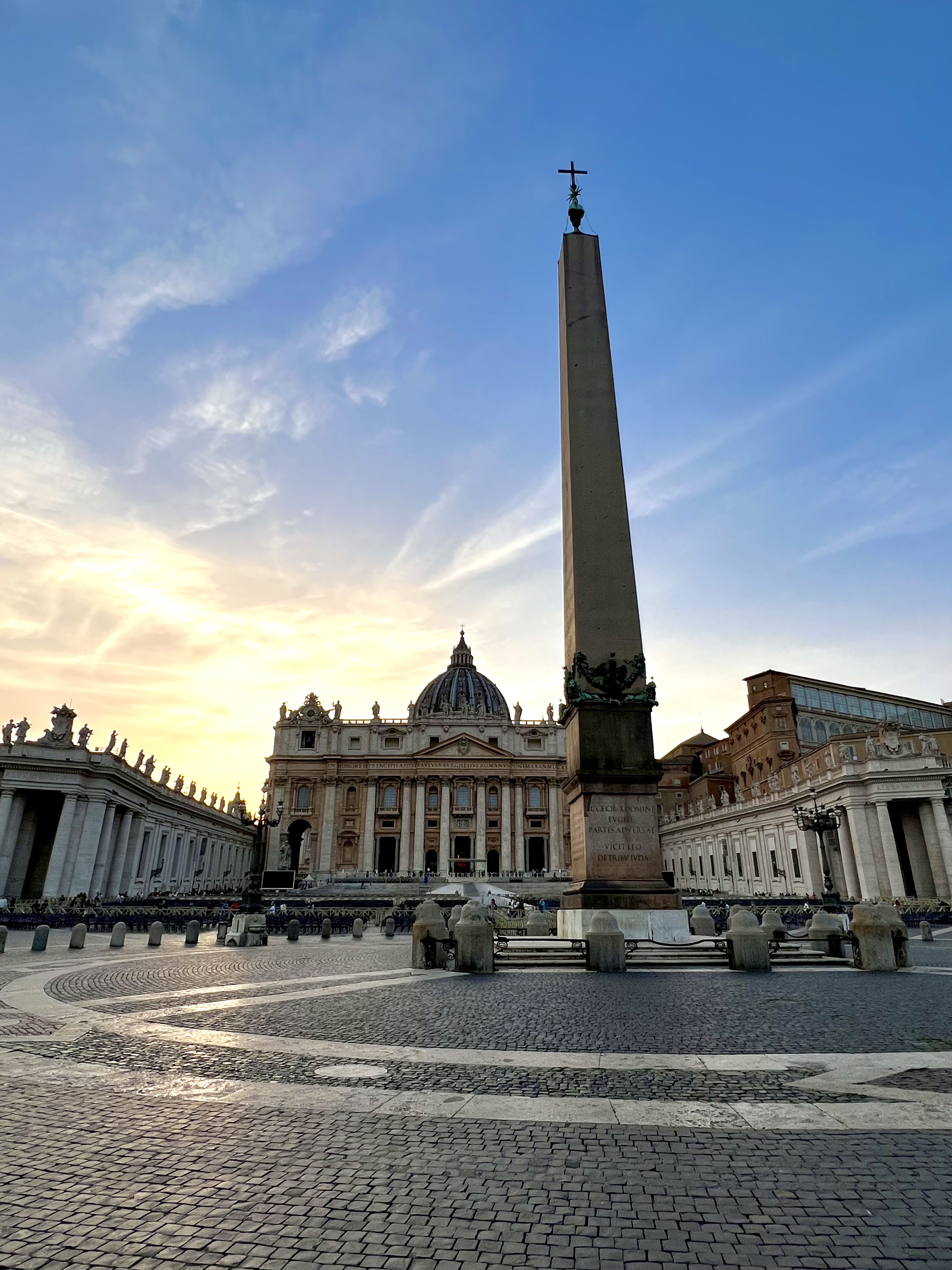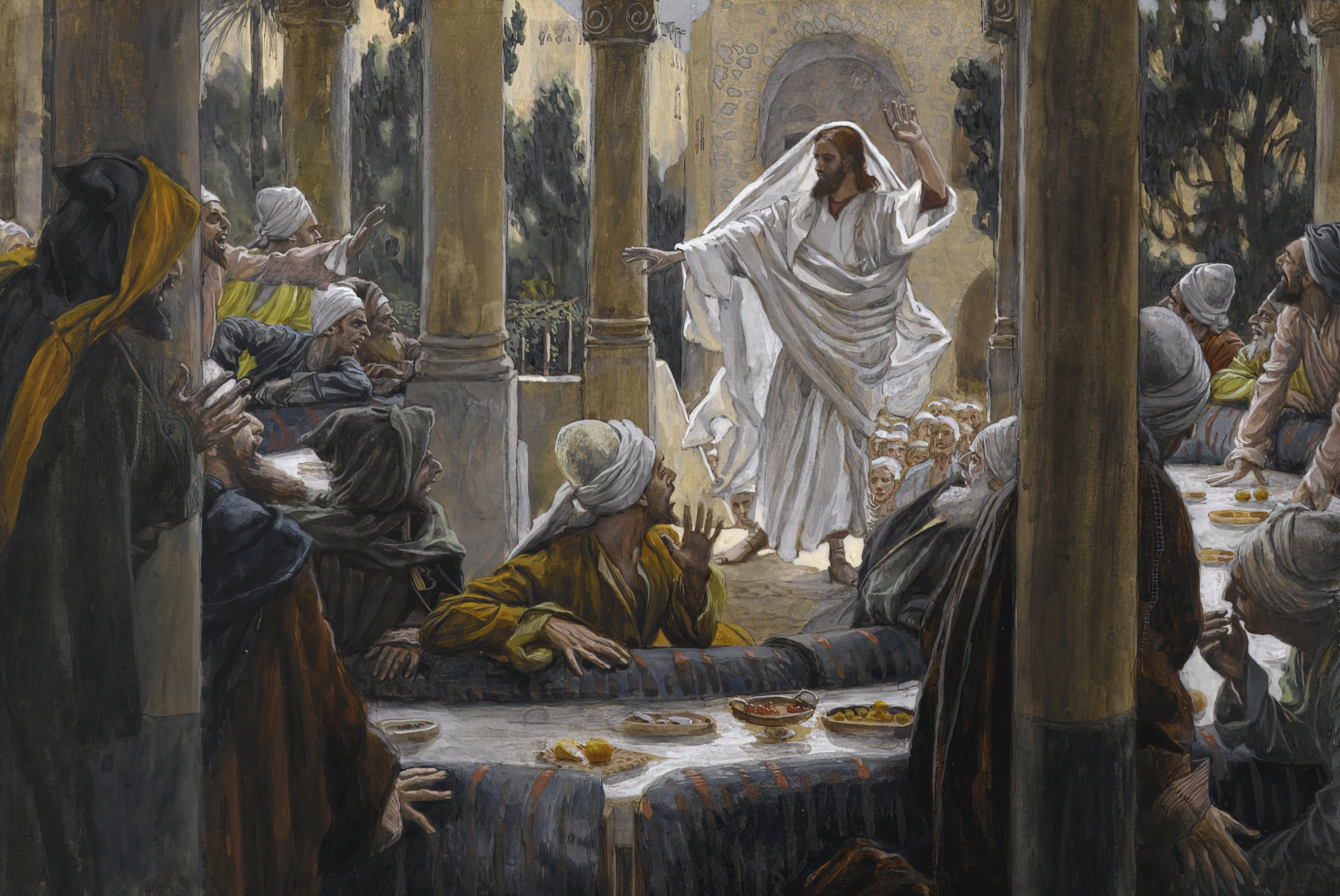A few months ago, I underwent major back surgery. The recovery process wasn’t easy because it takes time to get the pain under control and get used to moving in a certain way in order to avoid injury. I also had to wear an uncomfortable brace that looks more like a WWE belt that greatly restricts movement.
Before the surgery, I was used to doing housework alone and didn’t need any help. I would clean up everyday, put dishes in the dishwasher, and perform other household chores (I’m sure you’ve noticed by now that I’m a stay-at-home dad). During my recovery, it was a hard blow to my humility because now I had to ask my children and wife for help and they did the chores for me. Although they were always happy to help me, they had to do it in addition to their other duties whenever they had the time.
I had to ask, and continue to ask, God every day for the humility to accept my health condition and also learn to ask for help when I need it. I’ve always been athletic and liked to exercise all the time, but now I’m limited. I have to follow the doctor’s instructions and continue asking God to God give me strength.
Peter also suffered a blow to his humility in today’s Gospel. After working all night and catching nothing, he was surely tired and frustrated. When the Lord told him where to lower the nets, the first part of his response seemed like a grumble, but then he submitted and lowered them. He had to overcome the temptation to answer the Lord, “Really? Don’t you think I know what I’m doing? I’ve been fishing for years, and I tell you, there isn’t any fishing here! Who do you think you are, talking to me like that?” But Peter doesn’t say that; instead he says, “but at your command I will lower the nets.”
When he sees the great number of fish, the miracle the Lord has performed, he exclaims, “Depart from me, Lord, for I am a sinful man!” He realizes that although his words were not filled with pride, perhaps his thoughts were, and this was his way of asking for forgiveness. The power of that encounter was so strong that Peter left everything and followed Jesus.
We should be humble in every moment of our lives, not just when everything is going well. We have to put it into practice at all times, like when we ask someone for forgiveness. Don’t wait for something big to happen, like a surgery or a miraculous catch of fish, to react; ask God to give you the gift of humility here and now.
Hace unos meses me operaron de la columna. La recuperación no es fácil porque toma tiempo para calmar el dolor y acostumbrarse a mover de cierta forma para no provocar alguna lesión. Además, utilizar un cinturón que más parece de WWE es incómodo y no me deja moverme bien.
Antes de la operación estaba acostumbrado a hacer las cosas de la casa solo, sin necesidad de ayuda. Limpiaba diariamente, ponía los platos en el lavaplatos y otras tareas del hogar (seguro se han dado cuenta que soy papá en casa). Durante la recuperación fue un duro golpe a mi humildad, porque ahora tenía que pedir ayuda a mis hijos y esposa que hacían las tareas por mi. Aunque siempre ellos estaban alegres de ayudarme, lo tenían que hacer en adición a sus otros deberes cuando estaban desocupados.
Tuve que pedir y sigo pidiendo a Dios todos los días tener la humildad para aceptar mi condición de salud y también aprender a pedir ayuda cuando lo necesite. Siempre he sido deportista y me ha gustado estar haciendo ejercicio todo el tiempo, pero ahora estoy limitado. Tengo que seguir las indicaciones del doctor y seguir rezando para que Dios me dé la fortaleza.
Pedro también sufrió un golpe a la humildad en el evangelio de hoy. Después de trabajar toda la noche y no pescar nada, seguro estaba cansado y frustrado. Cuando el Señor le indica donde bajar las redes, la primera parte de su respuesta parece reniego pero luego se somete y las baja. Tuvo que dejar de lado la tentación de contestarle al Señor, “¿En serio? ¿No crees que sepa lo que estoy haciendo? Llevo años pescando y te digo que ¡aquí no hay! ¿Quién te crees para hablarme de esa forma?” Pero Pedro no habla así, sino dice “confiado en tu palabra echaré las redes.”
Cuando ve la gran cantidad de peces, el milagro que el Señor ha hecho, exclama “¡Apártate de mí, Señor, porque soy un pecador!” Se da cuenta que aunque sus palabras no eran llenas de orgullo, capaz sus pensamientos sí, y esa era su forma de pedir perdón. Tan fuerte era el poder de ese encuentro que Pedro dejó todo y siguió a Jesus.
La humildad siempre hay que tenerla en todo momento en la vida, no solo cuando estemos bien. Hay que ponerla en práctica en todo momento, hasta para pedir perdón a alguna persona. No esperes que te pase algo grande como una cirugía o una pesca milagrosa para reaccionar, pide a Dios que te dé el don de la humildad aquí y ahora.
 Felix Urcia was born in Lima, Peru. He moved the U.S. to complete his college degree in Computer Science at Northern Kentucky University. He is passionate about his faith, his family, education and soccer. When he is not homeschooling and caring for his young children he enjoys personal programing projects and sports analysis. He and wife live in a small town in Western Michigan where they enjoy spending time with their five children.
Felix Urcia was born in Lima, Peru. He moved the U.S. to complete his college degree in Computer Science at Northern Kentucky University. He is passionate about his faith, his family, education and soccer. When he is not homeschooling and caring for his young children he enjoys personal programing projects and sports analysis. He and wife live in a small town in Western Michigan where they enjoy spending time with their five children.
Feature Image Credit: Roman Melnychuk, unsplash.com/photos/man-in-white-dress-shirt-covering-face-with-his-hands-zmNBVKgkW1c
The views and opinions expressed in the Inspiration Daily blog are solely those of the original authors and contributors. These views and opinions do not necessarily represent those of Diocesan, the Diocesan staff, or other contributors to this blog.


 Former NPS Park Ranger, Catholic educator, and Youth Minister, Melissa Lucca now spends her days evangelizing family and neighbors as a stay-at-home mom. She holds an MA in Theology from the Augustine Institute and pursues personal study in her spare time. Melissa loves Ignatian Spirituality, Mother Mary, and rock climbing. If you don’t hear her and her kiddo laughing at home, then they are probably out on an adventure!
Former NPS Park Ranger, Catholic educator, and Youth Minister, Melissa Lucca now spends her days evangelizing family and neighbors as a stay-at-home mom. She holds an MA in Theology from the Augustine Institute and pursues personal study in her spare time. Melissa loves Ignatian Spirituality, Mother Mary, and rock climbing. If you don’t hear her and her kiddo laughing at home, then they are probably out on an adventure!
 Tami Urcia is a midwestern gal from a large Catholic family. As a young adulthood she was a missionary in Mexico, where she studied theology and philosophy. After returning stateside bilingual, she gained a variety of work experience, traveled extensively and finished her Bachelor’s Degree at Brescia University. She loves organizing and simplifying things, watching her children play sports, deep conversations with close family and friends and finding unique ways to brighten others’ day with Christ’s love. She works full time at Diocesan in the Software Department and manages the Inspiration Daily reflections. She is also a contributing writer on
Tami Urcia is a midwestern gal from a large Catholic family. As a young adulthood she was a missionary in Mexico, where she studied theology and philosophy. After returning stateside bilingual, she gained a variety of work experience, traveled extensively and finished her Bachelor’s Degree at Brescia University. She loves organizing and simplifying things, watching her children play sports, deep conversations with close family and friends and finding unique ways to brighten others’ day with Christ’s love. She works full time at Diocesan in the Software Department and manages the Inspiration Daily reflections. She is also a contributing writer on 
 David Dashiell is a freelance author and editor in the Nashville, Tennessee area. He has three children, a degree in theology, and enjoys writing about philosophy, theology, culture, music, and comedy. You can find his personal blog, Serious Daydreams, on
David Dashiell is a freelance author and editor in the Nashville, Tennessee area. He has three children, a degree in theology, and enjoys writing about philosophy, theology, culture, music, and comedy. You can find his personal blog, Serious Daydreams, on 
 Kathryn Mulderink, MA, is married to Robert, Station Manager for Holy Family Radio. Together they have seven children (including Father Rob), and eleven grandchildren. She is President of the local community of Secular Discalced Carmelites and has published five books and many articles. Over the last 30 years, she has worked as a teacher, headmistress, catechist, Pastoral Associate, and DRE, and as a writer and voice talent for Catholic Radio. Currently, she serves the Church by writing and speaking, and by collaborating with various parishes and to lead others to encounter Christ and engage their faith. Her website is
Kathryn Mulderink, MA, is married to Robert, Station Manager for Holy Family Radio. Together they have seven children (including Father Rob), and eleven grandchildren. She is President of the local community of Secular Discalced Carmelites and has published five books and many articles. Over the last 30 years, she has worked as a teacher, headmistress, catechist, Pastoral Associate, and DRE, and as a writer and voice talent for Catholic Radio. Currently, she serves the Church by writing and speaking, and by collaborating with various parishes and to lead others to encounter Christ and engage their faith. Her website is 
 Hailing from Nashville, Catherine is a graduate of Christendom College with a lifelong passion for words. Her love of writing and her Catholic Faith continue to shape her as a freelance editor, copywriter, and (aspiring) novelist, where she pursues her passions for the love and greater glory of God.
Hailing from Nashville, Catherine is a graduate of Christendom College with a lifelong passion for words. Her love of writing and her Catholic Faith continue to shape her as a freelance editor, copywriter, and (aspiring) novelist, where she pursues her passions for the love and greater glory of God.

 Elizabeth Tomlin is the author of Joyful Momentum: Building and Sustaining Vibrant Women’s Groups and contributing author to the Ave Prayer Book for Catholic Mothers. She is General Counsel for the Archdiocese for the Military Services, USA. Elizabeth is an Army wife and mother of three and currently lives in Oklahoma. You can find her at @elizabethannetomlin on social media and she blogs at
Elizabeth Tomlin is the author of Joyful Momentum: Building and Sustaining Vibrant Women’s Groups and contributing author to the Ave Prayer Book for Catholic Mothers. She is General Counsel for the Archdiocese for the Military Services, USA. Elizabeth is an Army wife and mother of three and currently lives in Oklahoma. You can find her at @elizabethannetomlin on social media and she blogs at 

 Lily is a Michigan native and cradle Catholic who has spent most of her life exploring her own reasons to embrace her faith fully. She attended Franciscan University of Steubenville, where she discovered the beauty of her personal relationship with Christ and the Church. After college, she worked in Montessori Education for three years and recently transitioned to nannying. She was recently married and spends most of her time reading, and enjoying her dog and family!
Lily is a Michigan native and cradle Catholic who has spent most of her life exploring her own reasons to embrace her faith fully. She attended Franciscan University of Steubenville, where she discovered the beauty of her personal relationship with Christ and the Church. After college, she worked in Montessori Education for three years and recently transitioned to nannying. She was recently married and spends most of her time reading, and enjoying her dog and family!
 Pamela Kavanaugh is a grateful wife, mother, and grandmother who has dedicated her professional life to Catholic education. Though she has done her very best to teach her students well in the subjects of language and religion, she knows that she has learned more than she has taught. She lives, teaches, and writes in southwest suburban Chicago.
Pamela Kavanaugh is a grateful wife, mother, and grandmother who has dedicated her professional life to Catholic education. Though she has done her very best to teach her students well in the subjects of language and religion, she knows that she has learned more than she has taught. She lives, teaches, and writes in southwest suburban Chicago.

